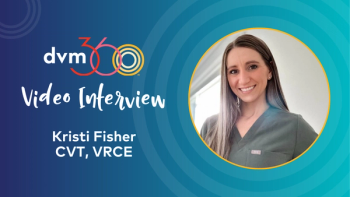
Wellness plans: A rescue story
Second graders rescued Shingle the cat when he was stuck on top of their school's roof. And a wellness plan rescued these underprivileged students when they decided to adopt the cat and provide for his veterinary care.
The American Association of Feline Practitioners created the Cat Friendly Practice program to provide clinics with the tools to integrate a feline perspective in both the physical environment of the practice and the way medical care is delivered. It equips practices with the tools, resources and information to elevate the treatment, handling and overall healthcare of cats, as well as emphasizes ways to reduce the stress associated with the visit. To learn more, visit:
Shingle got his name because students at the single-story elementary school found him on the roof. He was loaded with fleas, starving and cold but deft enough to have made it from the adjacent tree to the roof of the school. The maintenance man rescued him after the kids on the playground heard him mewing. It seemed to the principal a minor miracle that he was heard over the din of 100 7-year-olds. Since the second graders were so proud of their successful rescue, their teacher Miss Elliott decided to adopt him.
The local feline hospital loved the story and donated his first exam. The costs mounted when the series of vaccines, parasite control, neutering and other care were tallied. The parents couldn't afford to help with the veterinary bill, as many were underprivileged or just making ends meet themselves. The good news: The practice had just implemented a new wellness program that made all the difference to the kids. Only $30 a month would cover Shingle's needs for an entire year, along with several free visits that would provide many pictures of his transition from kitten to young boy kitty. The plan was affordable for the teacher and her students, even if times were tight.
Why wellness plans matter
Most new cat adoptions occur without any exchange of money. People think of cats as “free.” They appear in the backyard, are found wandering a shopping center parking lot or acquired for a very modest cost from a shelter. If the latter is the case, these days they almost always have had a vaccine or two and most likely have been neutered. No matter their origin, we know from the Bayer Veterinary Care Usage Study data that 83 percent of them are seen within the first year of adoption.
Sadly, a negative first veterinary experience means more than half never return, and cost plays a significant role. A modest monthly fee combined with complimentary visits and discounted services can be a way to overcome the sense that this “free” cat is going to bring costs associated with veterinary care.
Offering affordable long-term care can take many different forms, from basic plans to platinum plans that include dental care or even senior diagnostics. Whatever their composition, they commit the cat and the owner to your practice. The temptation to “shop” for discount services is offset by the sense of having been given incentives like affordable payment, free visits and discounted services. It feels like a good deal to the owner. This valuable time to create a trusting and committed relationship with these human guardians is a powerful antidote to the “special deal” or low-cost practice.
With wellness plans, you give the practice time to demonstrate how important these clients are to you, how deeply you value them and how your compassionate veterinary team can shine. Conscientious service and personal relationships are highly valued human experiences. Low-cost services and strangers can't hold a candle to these moments.
Elizabeth Colleran, DVM, MS, DABVP (feline), owns Chico Hospital for Cats and Cat Hospital of Portland, both Gold Status Cat Friendly Practices, and she serves as co-chair of the CFP Committee.
Newsletter
From exam room tips to practice management insights, get trusted veterinary news delivered straight to your inbox—subscribe to dvm360.






